
Post by : Monika
On October 5, 2025, Syria took a historic step toward rebuilding its political system by holding an indirect vote to elect members of its first parliament since the ousting of President Bashar al-Assad. This election is a major milestone in Syria’s long and difficult transition after years of civil war, violence, and authoritarian rule.
After Assad was removed from power, the country has faced enormous challenges. Millions of people were displaced, major cities were destroyed, and political institutions needed rebuilding. Now, Syria is attempting to create a government that represents its citizens and brings stability to a country torn apart by war. The indirect parliamentary election is seen as the first step toward achieving this goal.
The Voting Process
Unlike a typical election, this vote was indirect, meaning not all citizens cast ballots directly. Instead, 6,000 electors, chosen from various regions across the country, voted on behalf of the people. These electors gathered at regional electoral colleges to select the lawmakers who will fill the new parliament.
The polls opened at 9:00 a.m. local time and closed at 5:00 p.m., with preliminary results expected later in the day.
The indirect system was used because accurate population data is hard to obtain after the war, and millions of Syrians have been displaced, living outside their home provinces or even outside the country. President Ahmed al-Sharaa, who took leadership after the removal of Assad, stressed the importance of a swift and organized election to fill the parliamentary seats and move Syria toward political stability.
Composition of the New Parliament
The new Syrian parliament will consist of 210 seats. Two-thirds of these seats will be filled through the indirect vote, while the remaining third will be appointed directly by President Sharaa.
This appointment system has caused concern among critics who worry that it may lead to an unequal concentration of power. They argue that giving the president the authority to appoint one-third of lawmakers could undermine the independence and fairness of the parliament.
Despite these concerns, the government says the appointments are necessary to maintain stability during the country’s transition. Supporters also say that the parliament will help pass essential laws, rebuild the country, and guide Syria toward lasting peace.
Exclusions and Controversies
Not all regions participated in the vote. Three provinces, including areas in the northeast controlled by Kurdish-led authorities and the Druze-majority province of Sweida, did not take part in the election.
These areas are home to significant minority populations, and their exclusion has raised concerns about fairness and political inclusivity. Critics argue that leaving out these regions undermines the legitimacy of the new parliament and fails to represent Syria’s full diversity.
Another concern is the representation of women and minority groups in the parliament. While at least 20% of electors are women, there are no quotas ensuring female or minority lawmakers in the parliament itself. This has led to fears that the legislative body may not reflect the needs and voices of all Syrian communities.
Public Reaction
The public response to the election has been mixed.
Many Syrians see the indirect vote as an important step toward political stability and hope that a functioning parliament can help rebuild the country. They believe the election demonstrates that Syria is moving forward after years of conflict.
However, others are disappointed. Citizens who are unable to vote directly feel that their voices are not being fully heard. In some areas, people expressed frustration about the fairness of the electoral process and the exclusion of certain provinces.
For instance, residents of Deir al-Zor, a city divided by the Euphrates River between government-controlled and Kurdish-controlled territories, voiced concerns that the election might not fairly reflect the will of all citizens.
International Reactions
The international community is closely watching Syria’s political transition. Some countries have welcomed the formation of a new parliament and hope it will lead to a more inclusive and democratic system.
At the same time, international observers have emphasized the importance of protecting minority rights and ensuring that women and underrepresented groups are fairly included in government. The credibility and success of Syria’s new political system will depend on whether it can balance central authority with genuine representation for all communities.
Historical Context
Syria’s current political changes come after more than a decade of conflict. Bashar al-Assad came to power in 2000 and ruled with an authoritarian approach. Civil war broke out in 2011, following the wave of protests in the Arab world. Over the years, millions of Syrians were displaced, cities were destroyed, and millions more lost their lives.
After Assad was ousted, the country faced a major challenge: creating a government that could unite its citizens, protect minority rights, and restore trust in political institutions. The formation of a new parliament is seen as the first formal step toward rebuilding governance in Syria.
Role of President Ahmed al-Sharaa
President Ahmed al-Sharaa, who assumed power after leading the rebel forces that removed Assad, plays a critical role in Syria’s transition. He has emphasized the need for stability and has overseen the organization of this indirect election.
Critics argue that Sharaa’s ability to appoint one-third of the parliament could give him too much influence. Supporters claim this is necessary to ensure stability during a period of reconstruction and political uncertainty.
Sharaa’s leadership will likely determine how inclusive and effective the new parliament becomes. His ability to balance appointments with fair representation will shape Syria’s political future.
Challenges Ahead
Even with the new parliament, Syria faces significant challenges.
Political Inclusivity: Ensuring all regions, ethnic groups, and religious communities are fairly represented will be crucial. Excluding Kurdish and Druze areas creates tension that could undermine stability.
Women and Minority Representation: Without clear quotas for female or minority parliamentarians, the new government risks appearing exclusive and unrepresentative.
Rebuilding the Country: Years of war have destroyed infrastructure, schools, hospitals, and homes. The new parliament will face the enormous task of approving policies and funding for reconstruction.
Economic Recovery: Syria’s economy has been severely affected by war, sanctions, and loss of trade. Creating laws and policies to revive the economy will be essential for long-term stability.
Security Concerns: Some areas of the country remain unstable. Lawmakers will need to address security threats, including armed groups and remnants of the conflict, to maintain peace.
Future Outlook
The indirect parliamentary vote is only the beginning of Syria’s political transformation. The parliament, once fully formed, is expected to pass key legislation, provide oversight of government decisions, and guide the country toward democratic reforms.
The success of this parliament will largely depend on how inclusive and transparent the electoral process remains. If minority groups, women, and all regions feel represented, the new system could help Syria heal from years of division. If not, political tensions could continue to challenge stability.
Syria’s indirect parliamentary election on October 5, 2025, represents a historic shift from the authoritarian rule of Bashar al-Assad toward a potentially more inclusive political system.
While the process has faced criticism for excluding certain regions and minority groups, it is an important first step toward rebuilding governance in a war-torn nation.
As Syria continues its transition, the government and parliament will need to focus on inclusivity, reconstruction, economic recovery, and security to create a stable and functioning state. The coming months will be critical in determining whether the country can move past its past conflicts and create a political system that truly reflects the will of all Syrians.
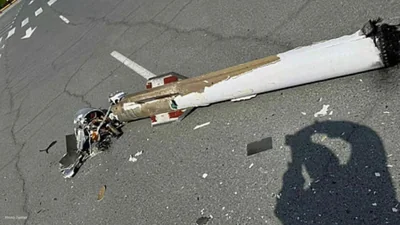
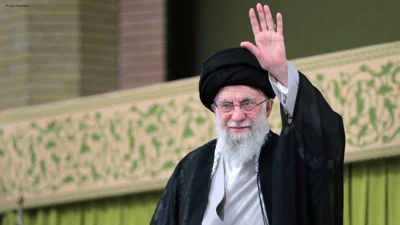

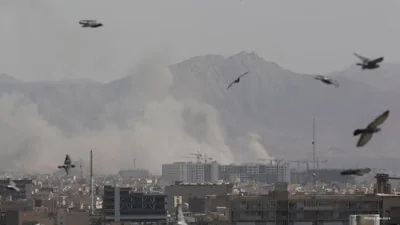
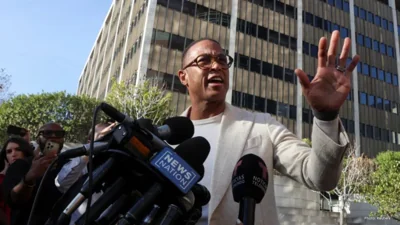
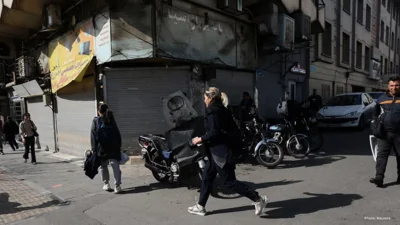




Mattel Revives Masters of the Universe Action Figures Ahead of Film Launch
Mattel is reintroducing Masters of the Universe figures in line with its upcoming film, tapping into

China Executes 11 Members of Criminal Clan Linked to Myanmar Scam
China has executed 11 criminals associated with the Ming family, known for major scams and human tra

US Issues Alarm to Iran as Military Forces Deploy in Gulf Region
With a significant military presence in the Gulf, Trump urges Iran to negotiate a nuclear deal or fa

Copper Prices Reach Unprecedented Highs Amid Geopolitical Turmoil
Copper prices soar to all-time highs as geopolitical tensions and a weakening dollar boost investor

New Zealand Secures First Win Against India, Triumph by 50 Runs
New Zealand won the 4th T20I against India by 50 runs in Vizag. Despite Dube's impressive 65, India